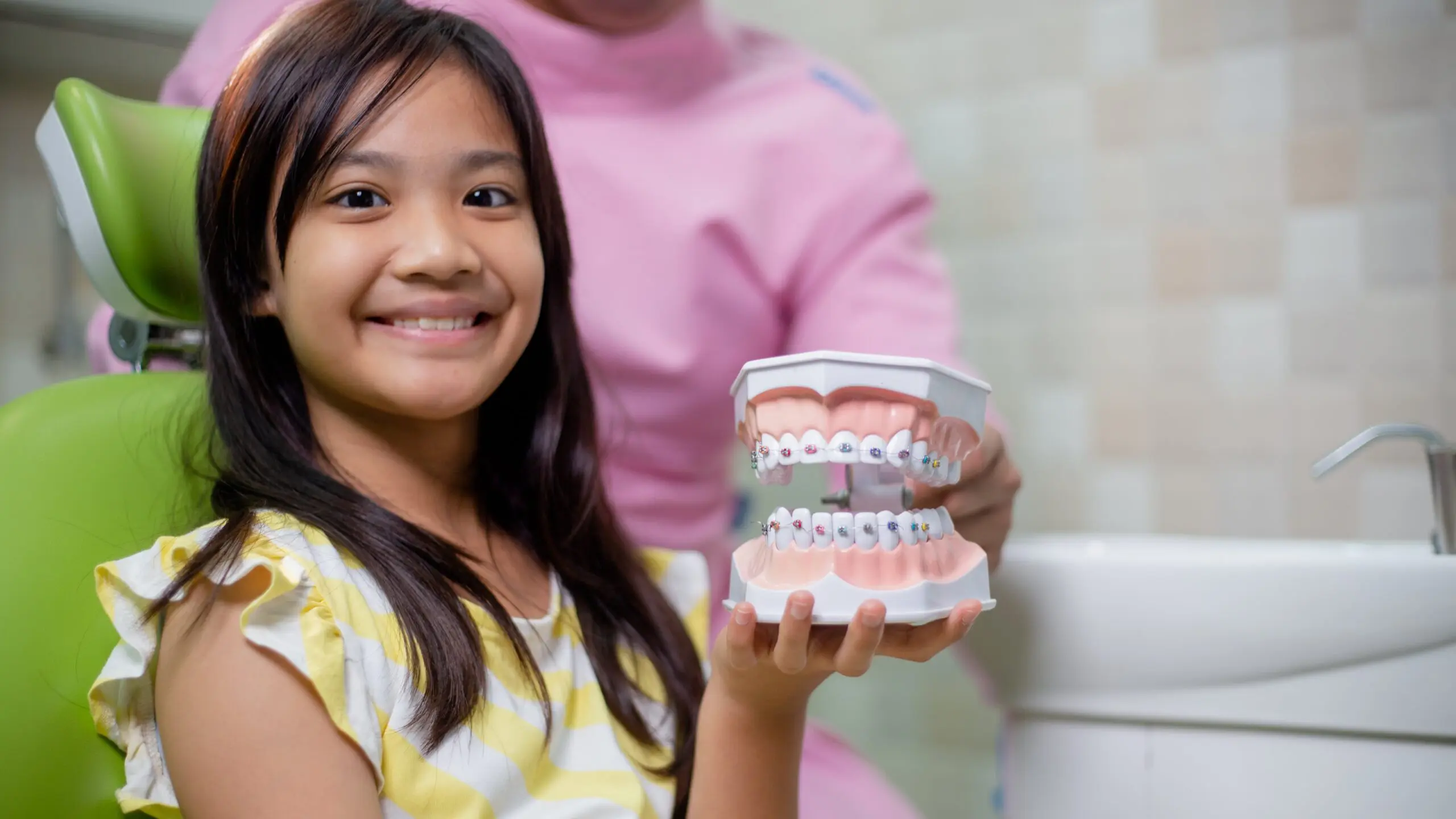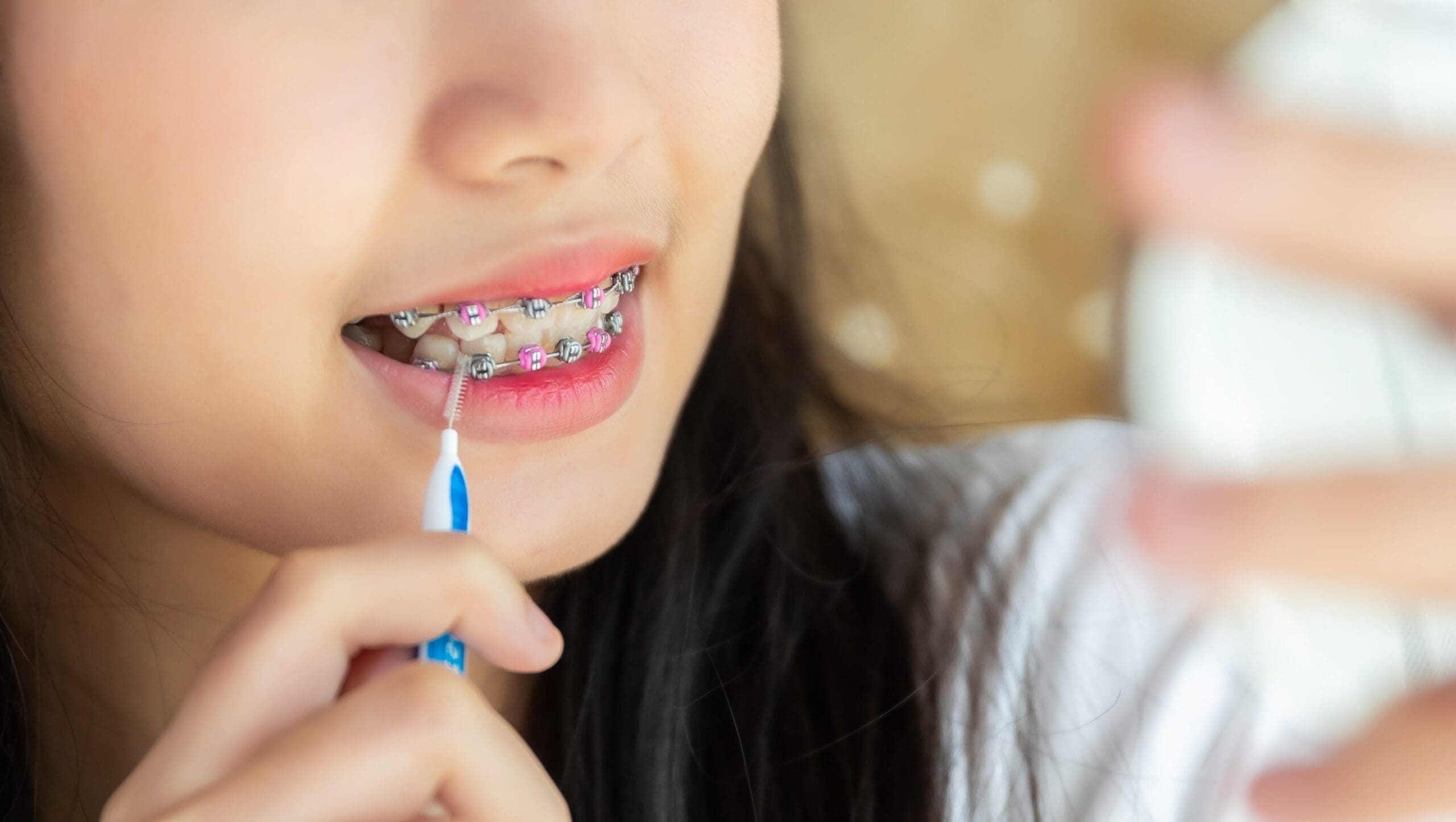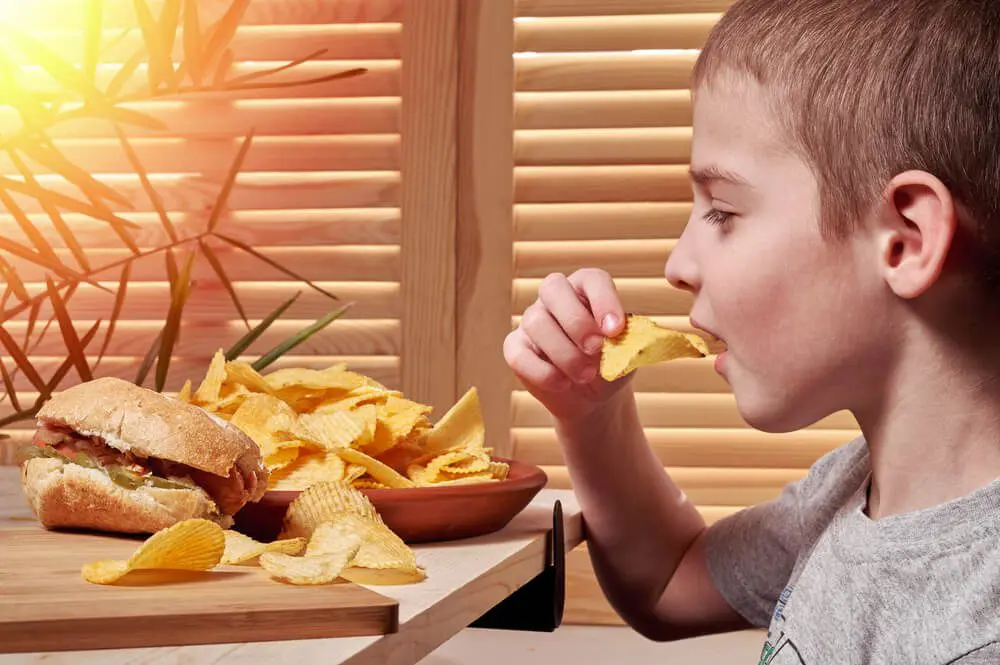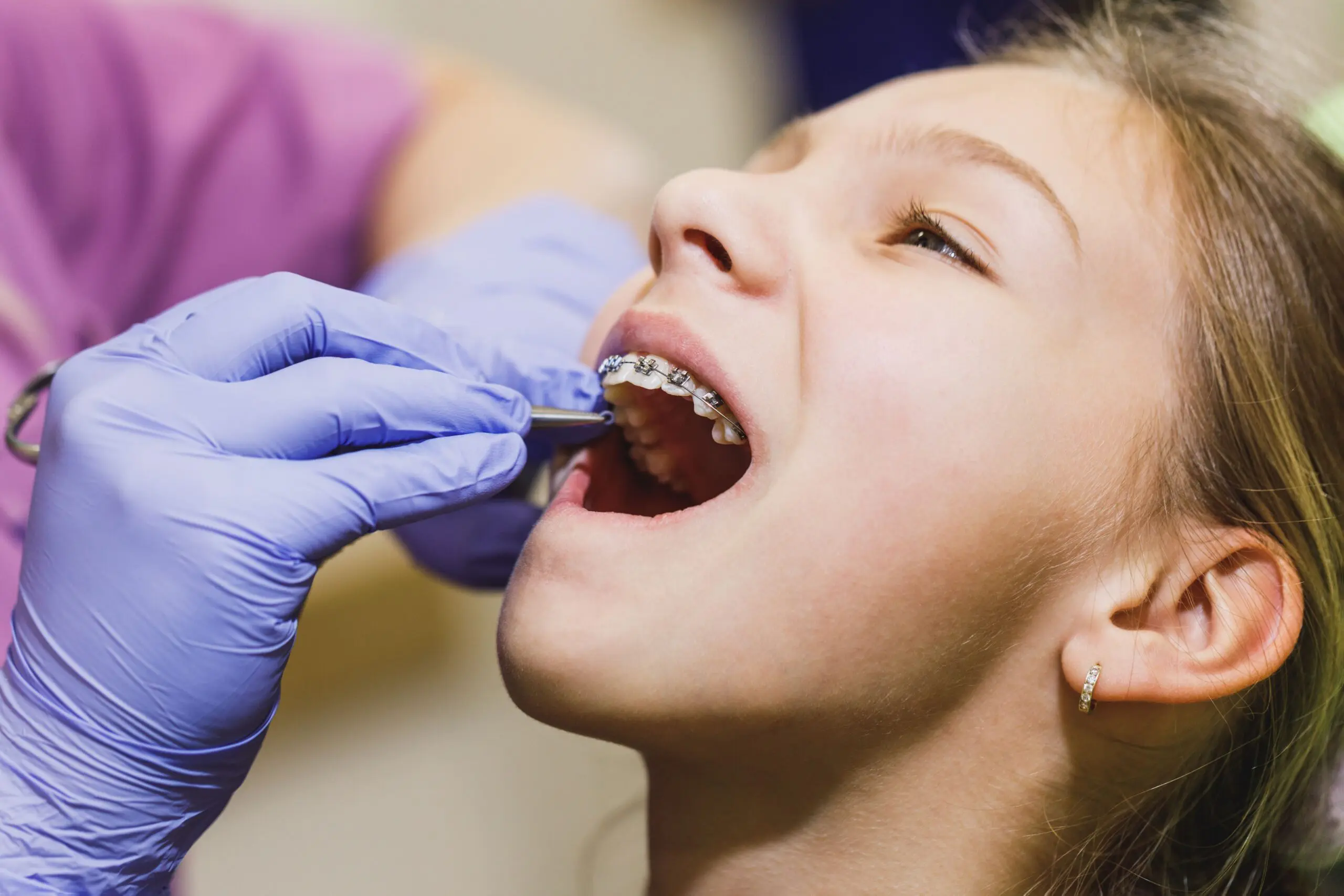
Helping kids take care of their braces during school keeps their treatment on track and helps them maintain a healthy smile. Small habits like brushing after meals, avoiding hard and sticky foods, and keeping a braces care kit handy can make a big difference.
With some planning, kids can focus on school while keeping up with their orthodontic care. At Smilebliss, we make braces care simple and stress-free, helping kids stay comfortable and confident throughout their treatment.
Have questions about your child’s braces? Contact us today to learn more about keeping their smile on track!
Braces require extra care to keep teeth and gums clean. Busy school schedules and the temptation of fast food can make it easy for kids to overlook brushing and flossing. However, skipping these steps can lead to plaque buildup, cavities, and gum irritation, slowing progress.
Following a daily routine prevents problems and helps braces work as they should. Brushing after meals, flossing daily, and using helpful tools like interdental brushes and mouthwash keep smiles in top shape.
 Keeping braces clean during the school day helps prevent plaque buildup and keeps treatment on track. Brushing and flossing after meals play a big role in maintaining a healthy smile and preventing food from getting stuck in brackets and wires.
Keeping braces clean during the school day helps prevent plaque buildup and keeps treatment on track. Brushing and flossing after meals play a big role in maintaining a healthy smile and preventing food from getting stuck in brackets and wires.
Brushing three times a day removes food particles that can get caught in braces. Keeping a travel-sized toothbrush and toothpaste in a school bag makes it easier for kids to brush between classes or after lunch.
Soft foods like yogurt, mashed potatoes, and smoothies are easier on braces, while crunchy or sticky foods like popcorn, caramel, and nuts should be avoided. If brushing isn’t possible, rinsing with water after eating helps wash away food particles and bacteria.
Flossing is just as important as brushing. Traditional floss can be tricky with braces, but floss threaders or water flossers make the process easier. Flossing helps remove plaque and food trapped between teeth and under wires, reducing the risk of cavities and gum irritation.
If a wire becomes loose or causes discomfort, orthodontic wax can provide relief. Over-the-counter pain relievers may also help ease soreness after adjustments. Keeping a braces care kit with floss, wax, and a toothbrush at school helps kids handle minor issues throughout the day.
Interdental brushes help clean around wires and brackets more effectively than a regular toothbrush. Using fluoride mouthwash strengthens enamel and helps reduce plaque buildup.
Regular checkups allow orthodontic specialists to track progress and make sure rubber bands and aligners are being worn correctly. Staying consistent with these visits prevents delays and keeps treatment on schedule.
Kids who wear aligners or retainers should clean them every day. Aligners should be rinsed with water and brushed gently with a soft toothbrush to remove bacteria and plaque.
Brushing before putting aligners back in keeps treatment effective. Skipping this step can trap food and bacteria against the teeth, leading to cavities or gum irritation.
The foods kids eat can affect their braces. Choosing soft, braces-friendly foods makes mealtimes easier and helps prevent discomfort.
Soft foods are best after braces adjustments when teeth may feel sensitive. Some great options for school lunches include:
 Certain foods can damage brackets and wires, leading to extra trips for repairs. Foods to avoid include:
Certain foods can damage brackets and wires, leading to extra trips for repairs. Foods to avoid include:
Instead, choose snacks like applesauce, cheese sticks, or crackers. Soft granola bars or muffins provide energy without the risk of damaging braces.
Kids should take their time when eating to avoid biting into something too hard. Cutting food into smaller pieces makes it easier to chew and lowers the chance of breaking brackets.
Water helps wash away food particles and keeps the mouth hydrated. Sugary and carbonated drinks contribute to plaque buildup, so it’s best to avoid soda and juice. A refillable water bottle makes it easier to drink water throughout the school day.
Braces take time to adjust to, and kids may experience some discomfort, especially after tightening appointments. Having a plan for common issues makes the adjustment process easier.
Mild soreness after getting braces or adjustments is normal. Soft foods like yogurt, soup, and applesauce can help. Over-the-counter pain relievers can be used if needed.
If a wire or bracket becomes loose, orthodontic wax prevents irritation until an appointment is scheduled. A pencil eraser or cotton swab can help gently push a poking wire back into place.
A small travel kit helps kids stay prepared for minor issues at school. It should include a toothbrush and toothpaste for cleaning after meals, floss or floss threaders to remove food particles stuck between braces, and orthodontic wax to cover any loose wires that may cause discomfort. A small mirror is also useful for checking braces throughout the day.
For kids in sports, a mouthguard protects braces from impact and prevents injuries. A well-fitted mouthguard allows them to stay active while keeping their orthodontic treatment on track.
 Regular orthodontic visits help check progress and make necessary adjustments. Skipping appointments can delay treatment, so it’s best to schedule checkups during school breaks or after classes to avoid conflicts.
Regular orthodontic visits help check progress and make necessary adjustments. Skipping appointments can delay treatment, so it’s best to schedule checkups during school breaks or after classes to avoid conflicts.
If rubber bands are part of the treatment, wearing them daily is necessary. Skipping even a few days can slow progress. Keeping extra rubber bands in a backpack makes them available when needed.
Brushing twice a day for two minutes keeps teeth clean and prevents plaque buildup. The “two-by-two” rule—brushing for two minutes, twice a day—helps kids develop good habits.
Floss threaders and interdental brushes make it easier to clean around brackets and wires, preventing stains and cavities.
Caring for braces during school doesn’t have to be complicated. Small habits like keeping a braces care kit, choosing the right foods, and staying on top of oral hygiene make a big difference.
A little preparation helps kids stay comfortable and confident throughout the school year. With the right approach, they can focus on learning while keeping their smiles healthy.
At Smilebliss, we make braces care easier for kids and parents. If you have any questions or need personalized tips, we’re here to help keep your child’s smile on track.